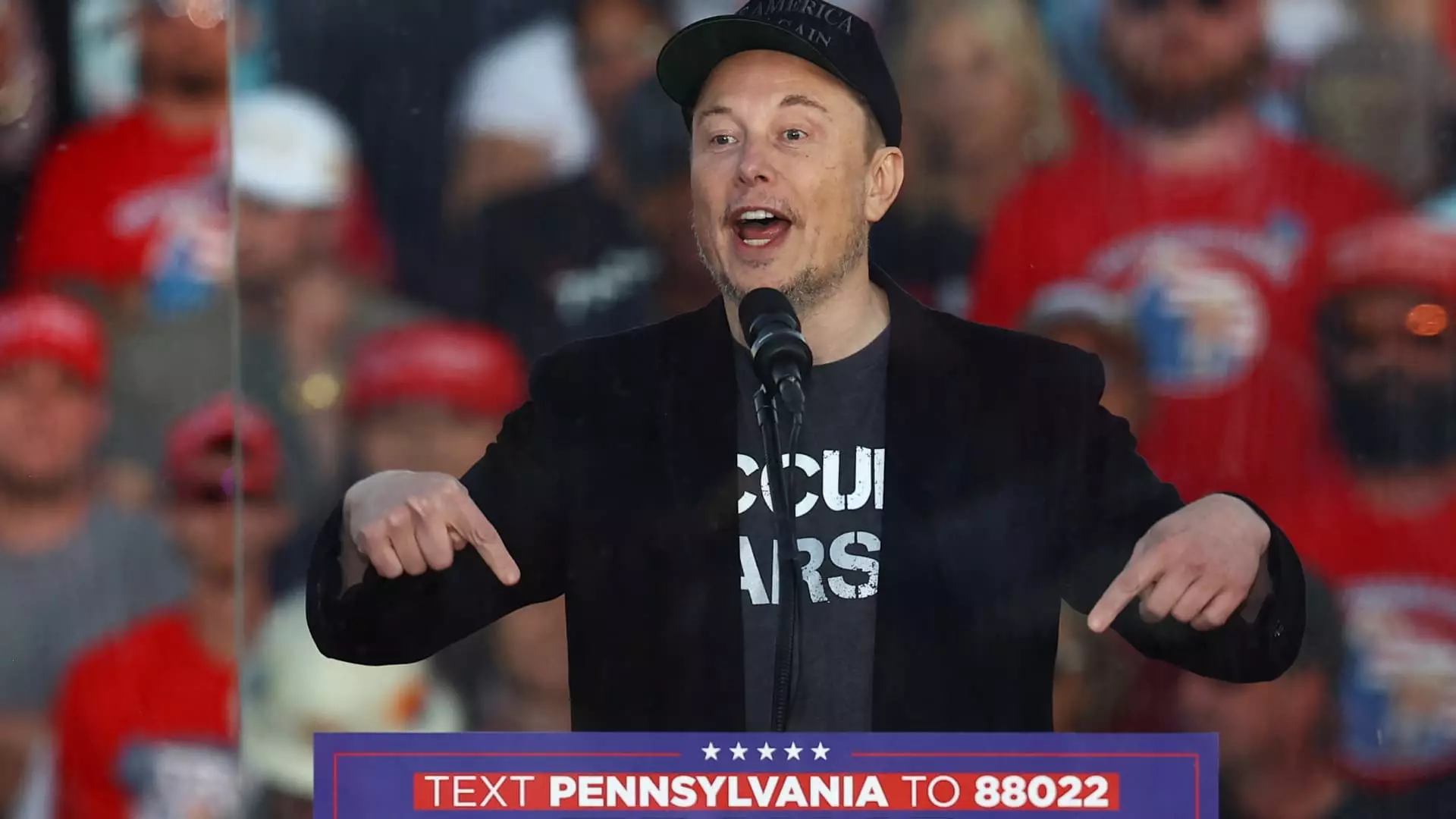In an era where social media reigns supreme, the lines between business, technology, and politics have become increasingly blurred. One of the most striking examples of this convergence is the recent actions of Tesla CEO Elon Musk, who is extending his influence into the political realm by supporting Donald Trump in the upcoming presidential election. Musk’s approach has raised eyebrows and sparked debates not only over ethical implications but also about the broader impact of digital platforms on political mobilization.
The motive behind Musk’s initiative is the promotion of a $47 referral bonus program, aimed at incentivizing individuals to refer swing-state voters to an online petition. This strategy, touted by Musk as “easy money,” conveniently intertwines his business acumen with political advocacy. The American Political Action Committee (PAC), which Musk reportedly founded, is attempting to gather personal contact information from voters under the guise of a petition that declares support for First and Second Amendment rights. However, the lack of transparency regarding the petition’s recipient and objectives raises significant concerns regarding its integrity and sincerity.
Critical examination of the petition shows that it lacks the conventional attributes that offer clarity and purpose. Traditionally, petitions delineate specific demands, include a clear delivery mechanism, and specify the goals intended to be achieved. Musk’s promotion does none of this. Instead, it seems primarily focused on gathering personal data rather than substantiating the claimed commitment to constitutional rights. This prerequisite for contact information from swing-state voters without a clear follow-up raises red flags about the intentions behind the petition.
Moreover, the specificity of the target audience—voters in critical swing states such as Pennsylvania, Georgia, and Michigan—suggests a strategic effort to influence states that hold the potential to decisively impact the election outcome. In a polarized electoral landscape, where every vote counts, Musk’s tactics appear aimed at maximizing turnout—or perhaps leveraging the data collected for more than just electoral purposes.
This venture is not Musk’s first foray into the murky waters of political maneuvering. Earlier attempts by the America PAC to gather contact information from swing-state voters came under scrutiny when state authorities investigated their methods for potential deceptive practices. Such investigations highlight the ethical responsibilities tied to political advocacy, particularly when massive wealth is involved.
Additionally, questions about Musk’s own financial contributions to the PAC add layers of complexity. While he is connected to the PAC and has reportedly donated funds, the absence of direct transparently documented donations raises questions about his role. As individuals scrutinize the interaction between wealthy donors and political influence, transparency becomes paramount, especially when considering the combination of digital technology and political action.
The Future of Political Engagement
Musk’s recent rally remarks amplifying the stakes of the upcoming election hint at a broader theme in contemporary politics: the idea that crucial freedoms are at risk. Such narratives, when intertwined with financial incentives for voter engagement, can create a potent but troubling mix. It illustrates how technology and social media can be harnessed to not only mobilize support but also to create divisions, raise suspicions, and foster misinformation.
Looking ahead, the ramifications of Musk’s actions are likely to be felt beyond the 2024 election. With political strategies increasingly taking shape in virtual spaces, the fusion of financial incentives and digital mobilization could redefine how elections are fought and won. As voters continue to navigate this brave new world of political engagement, the necessity for vigilance regarding the ethical considerations of such strategies is more critical than ever.
While the referral bonus initiative led by Musk and Trump seeks to invigorate political participation through financial incentives, it simultaneously raises fundamental questions about authenticity, transparency, and the ethical gray areas in modern political campaigning. As both the political landscape and technology evolve, it will be imperative for stakeholders to address these challenges to foster a healthier democratic process. The intricate dance between philanthropy, persuasion, and personal information will undoubtedly continue to play a significant role in shaping the future of political engagement.

Leave a Reply